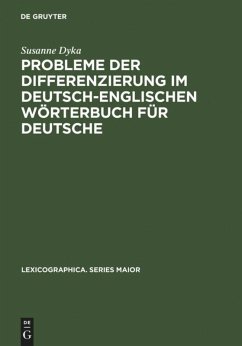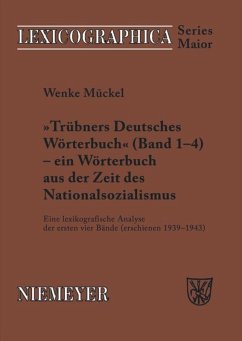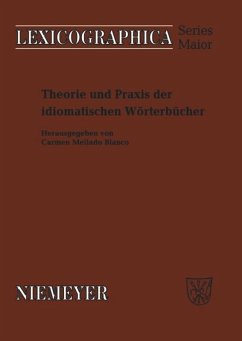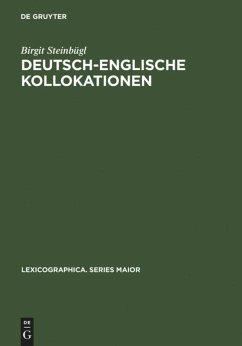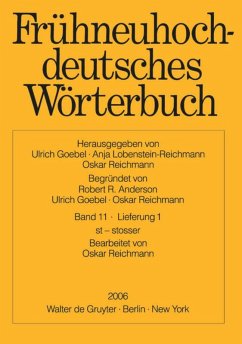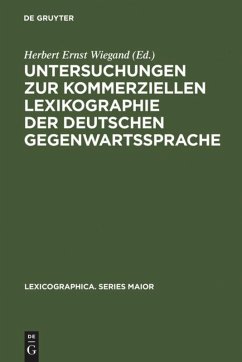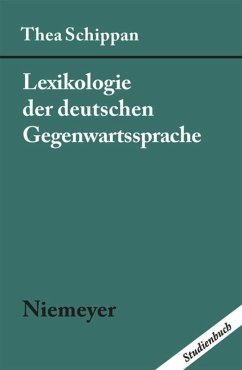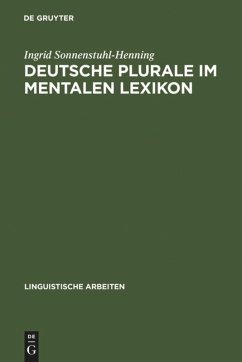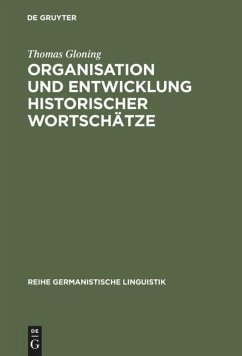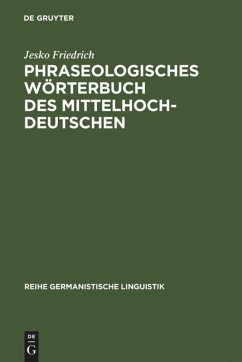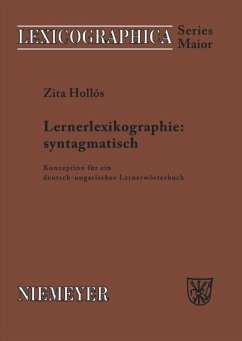
Lernerlexikographie: syntagmatisch
Konzeption für ein deutsch-ungarisches Lernerwörterbuch
Versandkostenfrei!
Versandfertig in 6-10 Tagen
99,95 €
inkl. MwSt.

PAYBACK Punkte
0 °P sammeln!
What has hitherto militated against the provision of a syntagmatic German-Hungarian learner dictionary is the absence not only of empirical methods for data retrieval and selection, but also of criteria for a typology of word combinations and a user-friendly form of presentation for foreign-language learners. This study is the first to combine IDS (Institute of the German Language) corpora with the COSMAS research system in an attempt to remedy this situation. The discussion of the subject matter of the dictionary generates a proposal for a typology of word combinations. The form of the dictionary is outlined on the basis of the theory advanced by H.E. Wiegand. The study also contains a substantial amount of empirical material.
Für alle Datentypen eines Wörterbuchs, aber auch für theoretische Zwecke bieten Korpora - eine Sammlung elektronisch gespeicherter und digital auswertbarer Texte - eine grundsätzlich neue Grundlage. Die Korpora des IDS mit dem Recherchesystem COSMAS reichen für die Beantwortung wissenschaftlicher Fragestellungen aus. Ihre Nutzungsmöglichkeiten werden relativ zur Konzeption für ein deutsch-ungarisches syntagmatisches Lernerwörterbuch beschrieben. Bisher fehlten nicht nur empirische Methoden zur Gewinnung und Selektion der dazu benötigten Daten, sondern auch Kriterien zur Typologisierung der gewonnenen Wortkombinationen sowie ihre systematische und benutzerfreundliche Präsentation für Fremdsprachenlerner.
Bei der Erarbeitung der Wörterbuchkonzeption wird der Schwerpunkt auf den Wörterbuchgegenstand und auf die Wörterbuchform gelegt. Für die Bestimmung des Wörterbuchgegenstandes wird eine Typologie der Wortkombinationen entworfen, damit Kollokationen von freien Wortkombinationen unterscheidbar sind. Die Ergebnisse der bisherigen Kollokationsforschung werden mit denen der Korpuslinguistik kombiniert. Bei der Entwicklung der adäquatesten Wörterbuchform wurde die Wörterbuchtheorie von H.E. Wiegand angewendet. Dabei wurde die Theorie immer mit empirischen Daten und Probeartikeln - insgesamt 49 - verdeutlicht. Die Studie enthält eine erhebliche Menge empirischen, sowohl linguistisch als auch lexikographisch aufbereiteten Materials.
Bei der Erarbeitung der Wörterbuchkonzeption wird der Schwerpunkt auf den Wörterbuchgegenstand und auf die Wörterbuchform gelegt. Für die Bestimmung des Wörterbuchgegenstandes wird eine Typologie der Wortkombinationen entworfen, damit Kollokationen von freien Wortkombinationen unterscheidbar sind. Die Ergebnisse der bisherigen Kollokationsforschung werden mit denen der Korpuslinguistik kombiniert. Bei der Entwicklung der adäquatesten Wörterbuchform wurde die Wörterbuchtheorie von H.E. Wiegand angewendet. Dabei wurde die Theorie immer mit empirischen Daten und Probeartikeln - insgesamt 49 - verdeutlicht. Die Studie enthält eine erhebliche Menge empirischen, sowohl linguistisch als auch lexikographisch aufbereiteten Materials.





